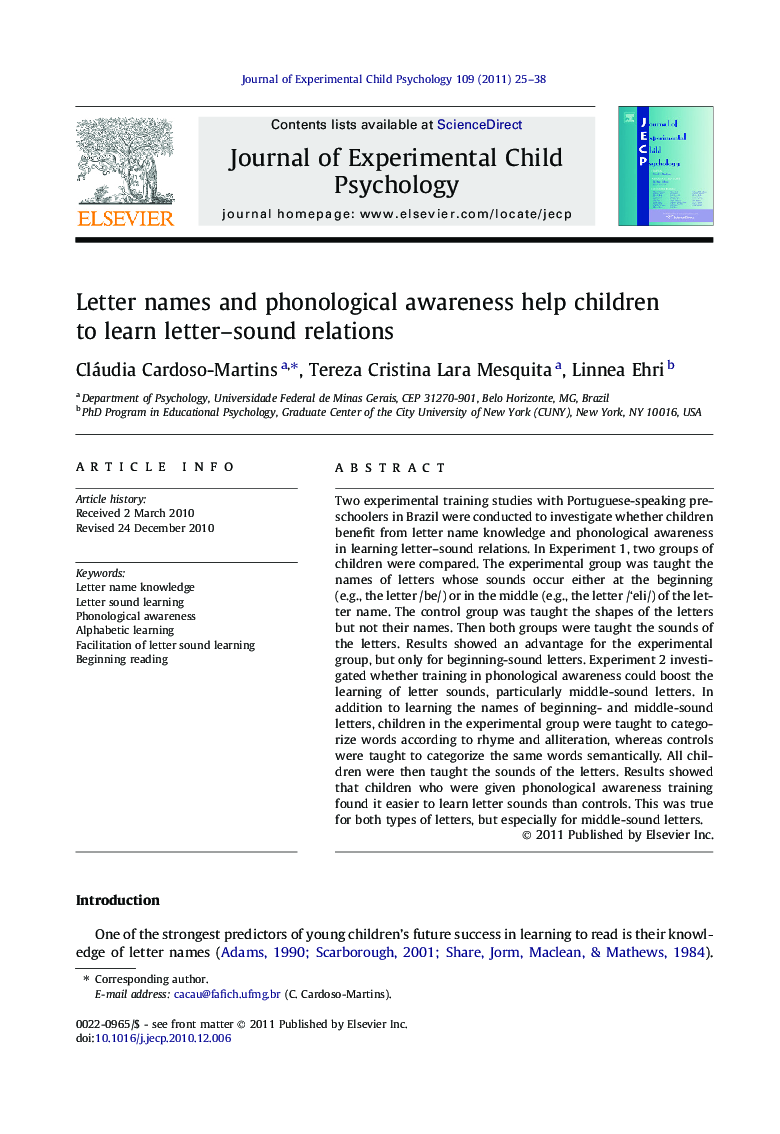| Article ID | Journal | Published Year | Pages | File Type |
|---|---|---|---|---|
| 918379 | Journal of Experimental Child Psychology | 2011 | 14 Pages |
Two experimental training studies with Portuguese-speaking preschoolers in Brazil were conducted to investigate whether children benefit from letter name knowledge and phonological awareness in learning letter–sound relations. In Experiment 1, two groups of children were compared. The experimental group was taught the names of letters whose sounds occur either at the beginning (e.g., the letter /be/) or in the middle (e.g., the letter /‘eli/) of the letter name. The control group was taught the shapes of the letters but not their names. Then both groups were taught the sounds of the letters. Results showed an advantage for the experimental group, but only for beginning-sound letters. Experiment 2 investigated whether training in phonological awareness could boost the learning of letter sounds, particularly middle-sound letters. In addition to learning the names of beginning- and middle-sound letters, children in the experimental group were taught to categorize words according to rhyme and alliteration, whereas controls were taught to categorize the same words semantically. All children were then taught the sounds of the letters. Results showed that children who were given phonological awareness training found it easier to learn letter sounds than controls. This was true for both types of letters, but especially for middle-sound letters.
